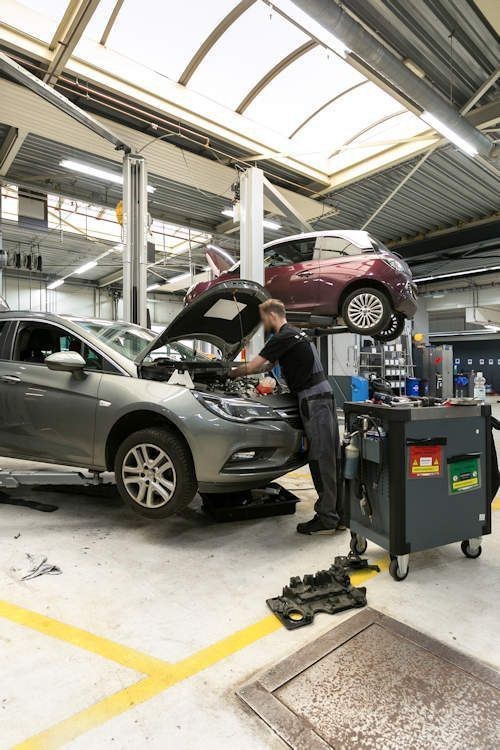Introduction
The automotive industry has been one of the most transformative sectors in modern history, shaping economies, infrastructure, and daily life. From the invention of the first automobile to today’s cutting-edge electric and autonomous vehicles, the automotive industry continues to evolve at an unprecedented pace. This article explores the history, current trends, and future prospects of the automotive industry, detailing the challenges and opportunities that lie ahead.
The History of the Automotive Industry
The automotive industry began in the late 19th century when Karl Benz developed the first practical automobile powered by an internal combustion engine. Soon after, Henry Ford revolutionized the automotive industry with the introduction of assembly line production, making vehicles more affordable for the masses. By the mid-20th century, the automotive industry had become a key driver of economic growth worldwide.
Post-World War II, the automotive industry saw rapid advancements in engineering, safety, and design. The introduction of muscle cars, compact cars, and luxury vehicles expanded consumer choices, and globalization allowed major manufacturers to establish production facilities across the world. The automotive industry grew beyond just transportation; it became a symbol of technological progress and personal freedom.
The Role of Technology in the Automotive Industry
The automotive industry has always embraced technological advancements. Over the past few decades, innovations in fuel efficiency, safety, and connectivity have reshaped vehicle design. Features such as anti-lock braking systems, airbags, and electronic stability control have made modern vehicles safer than ever before.
With the advent of digital technology, the automotive industry has integrated smart features such as GPS navigation, voice recognition, and AI-driven assistants. The shift toward autonomous driving represents one of the most groundbreaking changes in the automotive industry, with companies like Tesla, Waymo, and traditional manufacturers investing heavily in self-driving technology.
The Shift Towards Electric Vehicles
One of the biggest transformations in the automotive industry is the shift from fossil fuel-powered vehicles to electric vehicles (EVs). Concerns over climate change and sustainability have driven governments and manufacturers to focus on cleaner alternatives. Companies like Tesla, Rivian, and traditional automakers such as Ford and General Motors have launched electric vehicle models to meet the growing demand.
The rise of EVs has also influenced the automotive industry supply chain, with increased demand for lithium-ion batteries, charging infrastructure, and renewable energy integration. This shift represents a fundamental rethinking of vehicle production and usage in the automotive industry.
Autonomous Vehicles and the Future of Mobility
Autonomous vehicles (AVs) are set to disrupt the automotive industry by transforming how people and goods move. Self-driving technology aims to improve road safety, reduce traffic congestion, and enhance fuel efficiency. Companies like Google’s Waymo and Uber’s autonomous division are testing AVs in real-world conditions, aiming for widespread adoption in the near future.
While the technology is promising, the automotive industry faces challenges in regulatory approval, infrastructure readiness, and consumer acceptance. Despite these hurdles, experts predict that autonomous vehicles will play a significant role in shaping the future of the automotive industry.
The Impact of Sustainability on the Automotive Industry
Sustainability has become a major focus for the automotive industry. Governments worldwide are imposing stricter emissions regulations, prompting automakers to develop greener technologies. Hybrid and fully electric vehicles are gaining popularity as consumers demand more sustainable transportation options.
Moreover, the automotive industry is exploring alternative fuels such as hydrogen and biofuels to reduce carbon footprints. Manufacturers are also focusing on sustainable production practices, including recycling materials and reducing waste in vehicle manufacturing.
Challenges Facing the Automotive Industry
Despite its advancements, the automotive industry faces several challenges. The COVID-19 pandemic disrupted supply chains, leading to shortages of critical components such as semiconductors. Rising raw material costs and geopolitical tensions have also affected vehicle production and pricing.
Another challenge in the automotive industry is the transition to electric and autonomous vehicles. Traditional automakers must invest heavily in research and development while managing the costs of shifting from conventional manufacturing processes. Additionally, consumer concerns regarding battery life, charging infrastructure, and vehicle affordability continue to shape market dynamics.
The Future of the Automotive Industry
Looking ahead, the automotive industry is poised for significant innovation and transformation. Trends such as shared mobility, connected vehicles, and artificial intelligence will redefine how people interact with transportation. The integration of blockchain for vehicle data security, 5G connectivity for smart traffic management, and sustainable materials for car production will further enhance the automotive industry.
As technology advances, partnerships between automakers and tech companies will become more prevalent, accelerating the pace of innovation in the automotive industry. Governments will also play a crucial role in shaping policies that promote sustainability, safety, and efficiency in vehicle manufacturing and usage.
Conclusion
The automotive industry has come a long way from its humble beginnings, evolving into a dynamic and technology-driven sector. With electric vehicles, autonomous driving, and sustainable practices shaping its future, the automotive industry is set to undergo its most significant transformation yet. Despite challenges such as supply chain disruptions and regulatory complexities, the automotive industry remains a critical driver of economic growth and innovation. As we move toward a smarter, cleaner, and more efficient transportation era, the automotive industry will continue to redefine mobility on a global scale.
